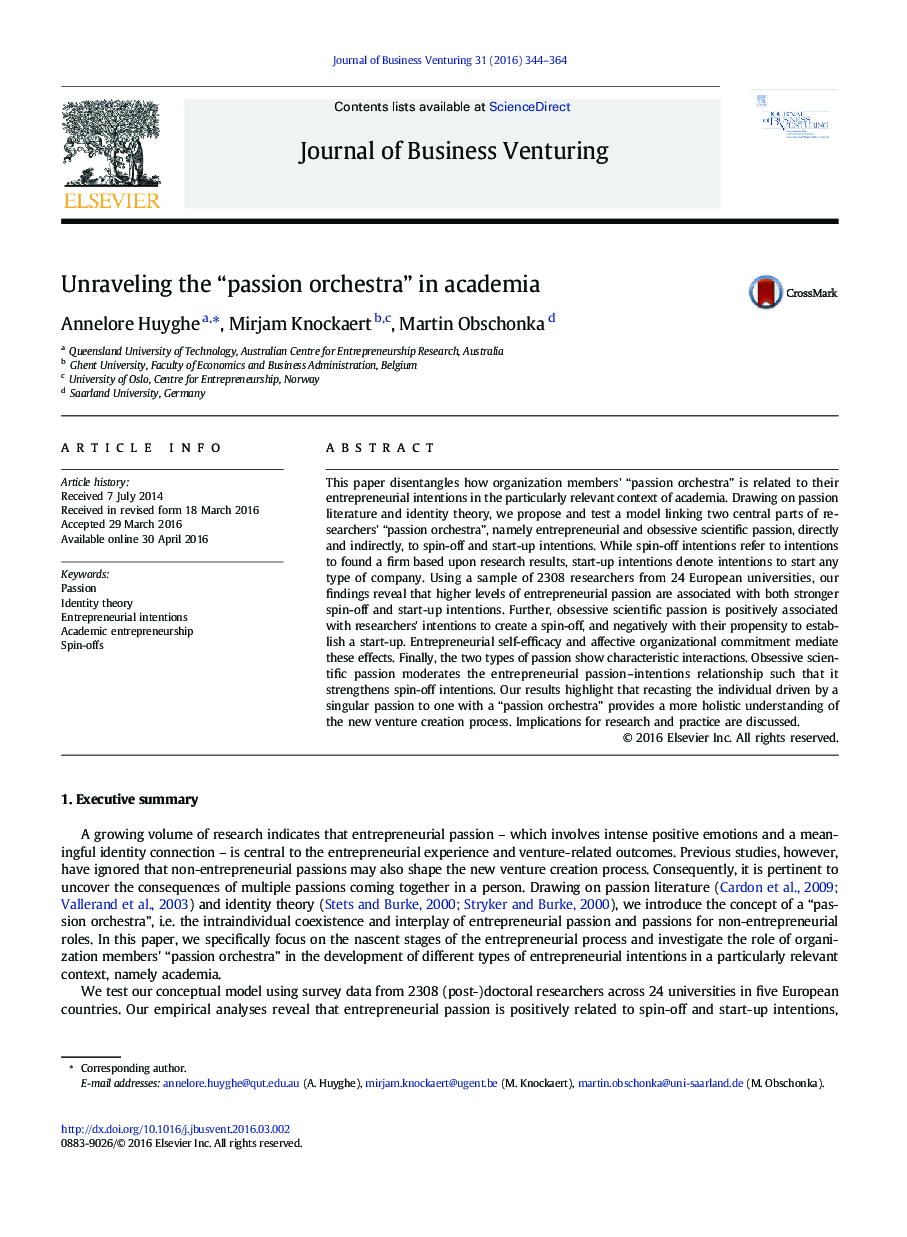| Article ID | Journal | Published Year | Pages | File Type |
|---|---|---|---|---|
| 1019307 | Journal of Business Venturing | 2016 | 21 Pages |
•This study unravels how an organization member’s “passion orchestra” affects the entrepreneurial process.•We focus on the formation of entrepreneurial intentions, in the context of academia.•Entrepreneurial passion (EP) and obsessive scientific passion (OSP) are linked to spin-off and start-up intentions.•Entrepreneurial self-efficacy and affective organizational commitment act as mediators.•Characteristic interactions occur between passions; OSP strengthens the positive link between EP and spin-off intentions.
This paper disentangles how organization members' “passion orchestra” is related to their entrepreneurial intentions in the particularly relevant context of academia. Drawing on passion literature and identity theory, we propose and test a model linking two central parts of researchers' “passion orchestra”, namely entrepreneurial and obsessive scientific passion, directly and indirectly, to spin-off and start-up intentions. While spin-off intentions refer to intentions to found a firm based upon research results, start-up intentions denote intentions to start any type of company. Using a sample of 2308 researchers from 24 European universities, our findings reveal that higher levels of entrepreneurial passion are associated with both stronger spin-off and start-up intentions. Further, obsessive scientific passion is positively associated with researchers' intentions to create a spin-off, and negatively with their propensity to establish a start-up. Entrepreneurial self-efficacy and affective organizational commitment mediate these effects. Finally, the two types of passion show characteristic interactions. Obsessive scientific passion moderates the entrepreneurial passion–intentions relationship such that it strengthens spin-off intentions. Our results highlight that recasting the individual driven by a singular passion to one with a “passion orchestra” provides a more holistic understanding of the new venture creation process. Implications for research and practice are discussed.
